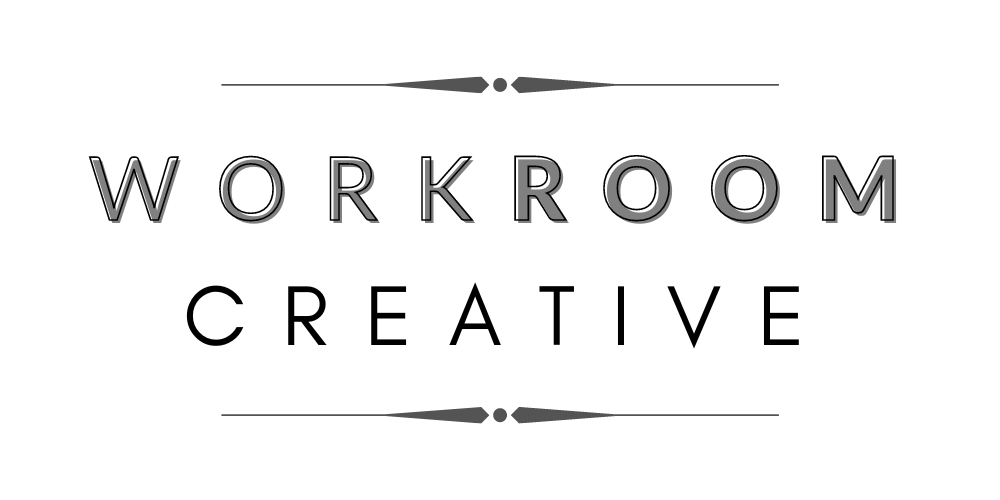Blog Layout
How To Turn A Promoter Of Your Business Into A Detractor
Peter Hayes
A surefire way to turn a passionate advocate into a negative critic.
The title of this post may sound backward, because, for obvious reasons, the goal of any business is to energize potential employees (like potential clients, which they are) - not to turn them off. But many HR/marketing/leadership team members would and should be surprised to learn that their company regularly does exactly this. There is, in fact, a single surefire way to turn someone against your brand - and that is to treat (intentionally or not) job applicants with contempt, disrespect, and rudeness. How? By failing to send a rejection letter.
Broad personal experience as well as the experiences of too many friends and family show me that without a doubt this is a consistent and widespread issue. So how can a company - especially one whose mission is theoretically to ‘attract top talent’ - ensure that they do not negatively impact their reputation through their poor treatment of candidates? The answer, again, is simple: send one timely, sincere, and empathetic email. As anyone who has been a job hunter has experienced, there is often already a lack of good-faith communication in the search/interview/hiring process. The system in general needs significant improvement. But for the scope of this article, let’s focus on this one.
The issue - the fact that candidates who have engaged in the hiring process are simply left hanging with no communication - is, I believe, partly due to process issues (for example, having a disorganized approach to interviewing and interview follow-up), but I suspect that it is has a good deal more to do with the uncomfortable nature of saying ‘no.’ If this is the case, it is time to address that discomfort within your organization, no matter what size. Big or small, if your company is not proactively treating ALL candidates with respect and reasonably transparent communication, especially in issuing rejections, it is unequivocally harming your business.
"Big or small, if your company is not proactively treating ALL candidates with respect and reasonably transparent communication, especially in issuing rejections, it is unequivocally harming your business."
Let's pause for a moment and understand why a response to a candidate may be so important by thinking about the process a prospective employee typically goes through. First, they find a job listing, review the requirements, and begin to compare their experience with the needs of the company. Already they have effectively begun engaging with your brand and your business. Next, as they move through the process of editing a resume and writing a cover letter they are doing initial research into what your business does and how they can contribute to its growth and success. They are reviewing your website, reading your marketing material, thinking about your products and services, and beginning to imagine themselves in the role advertised. (Prospective customer behavior does not get more ideal than this!) Finally, by the time they make it through various stages of interviews, from phone screens and video calls to in-person office visits, they have laid the foundation for a relationship, and critically, so has the business - since a relationship is by definition 2-way.
Now, if we look at this dynamic from a marketing perspective, we should be horrified to learn that after all this investment (time, money, resources, not to mention personal energy) poured into building a relationship, too many businesses to count burn that relationship to the ground by stopping all communication with the candidate if they are not chosen for the role. By doing this, the hiring manager - because they do not have the training, infrastructure, or courage in place to send a simple email - turns someone who was once thrilled about the company (enough to consider spending a third of their life there), into someone who has negative emotions. As days of no contact tick by, a typical candidate may become by turns:
Day 1: understanding
(they are busy and talking to other candidates, I hope I get it!)
Day 2: empathetic
(did that person who promised to ‘let me know’ get sick? Are they ok?)
Day 3: confused
(maybe they somehow lost my contact information?)
Day 4: disappointed
(ok, I guess I didn’t get the job, I would have heard by now ...)
Day 5: frustrated and hurt
(fine - they went with a different candidate - I can respect that, but they should have had the courtesy/decency to let me know. Not to receive a phone call or email is insulting.)
Day 6: actively critical
(I cannot understand why I was treated so poorly, and cannot recommend this company any longer...I’m going to complain out loud to my spouse and friends, and online.)
Of course, it is never pleasant to receive a rejection email (having made these decisions numerous times as a hiring manager, I can tell you that it is also not pleasant to send them). But at a minimum, it illustrates respect, showing a candidate that their time and energy are valued, and that the relationship you built with them is meaningful. Perhaps they will be a better fit for another role, perhaps they will become customers, perhaps they will sulk a little and move on. All candidates are, after all, only human. What they very likely will NOT do, if treated fairly, is: write a negative review on Glassdoor or other platforms, relay how unprofessional their experience was by word of mouth, stop purchasing your company’s products and services, unfollow you on social media, etc... These are examples of the fallout that everyone in any company should always be working against - from the marketing team to the CEO, from the engineers to the service representatives - because no one wants to learn that the hard work they dedicate to winning customers and supporters is undercut by an inability or unwillingness of someone else in the company to send one fast, respectful email.
The solution to prevent a brand advocate from becoming a detractor is so effective and so easy that I am astounded at the frequency of businesses’ failure to implement it. I do not, however, believe that a culture of disregard is intentionally widespread, and so I have hope that we can change it. It’s time to reassess our policies and our practices. To jumpstart that change, I’ve included a sample rejection letter below. Feel free to copy, paste, and edit it as needed. Just please stop ignoring candidates - they deserve acknowledgement of their time, effort, and personhood and some basic human kindness to help them remain a promoter. Take 30 seconds and send the email - It’s not only the right thing to do - it’s also good for business.
-------------------------------------------------------------------------------------------------------------------------------------------------------------------
Hi {First Name},
Thanks again for your interest in the {Position Name} position at {Company Name}. We appreciate your interest and the time you took to reach out.
After careful consideration, however, we've decided not to move forward with your candidacy at this time. It was great to {meet/talk/get to know} you and we'll keep you in mind if a position that’s a better fit opens up in the future.
Best of luck with your search. I understand it can be challenging but am certain that you’ll find the right opportunity.
Best,
{Your Name}
More Blog Posts

By Peter Hayes
•
August 20, 2020
Thursday Morning Coffee Early every Thursday morning, I hop onto a Zoom call with a small group of other small business owners. We drink our coffee or tea and share local news. This specific group is geared towards very local connections. In fact, it was originally proposed as a monthly in-person meeting, but due to Covid, it was moved online. It also morphed into a friendly weekly get-together where personal and local news is shared in addition to pure 'business' talk. Make Connections, Share Ideas, Learn From Others Our group has had guest speakers on such relevant topics as SEO in addition to providing a platform for bouncing ideas off other small business owners. It has been a way to learn from others in a wide variety of fields - from financial planners and real estate professionals to photographers and counselors - the insight and breadth of knowledge is inspiring. Its also a great place to ask for small favors like reviewing and/or promoting articles on LinkedIn or other social media. Start Your Own I highly recommend researching on Nextdoor, LinkedIn, or Facebook to find your own local small business group. If you can not find one, start your own! It is an amazing way to meet with others who share your challenges and have great ideas to share.

By Peter Hayes
•
June 23, 2020
SCORE is the nation’s largest network of volunteer, business mentors. They have approximately 10,000 volunteers in more than 250 chapters nationwide. Most, if not all SCORE mentors bring real-world business experience. They are typically working and/or retired business owners, executives and managers who have been through the same challenges and decisions that many entrepreneurs are facing today. I have personally worked with a number of volunteer mentors in a few different cities and have always found their advice to be honest (sometimes a bit too honest...) sincere, and trustworthy. They are objective and knowledgeable - especially about their local community - and very approachable. In addition to one-on-one conversations, I have found their online business resources to be be a great starting point whenever I run into new questions about starting/running a business. They also have an ongoing series of webinars and events that cover a variety of topics. From business plans and spreadsheets to marketing advice and general small business help, I highly recommend utilizing this set of free resources for your new or growing business. Learn more about what they have to offer at this link .
© 2025
All Rights Reserved | Workroom Creative






